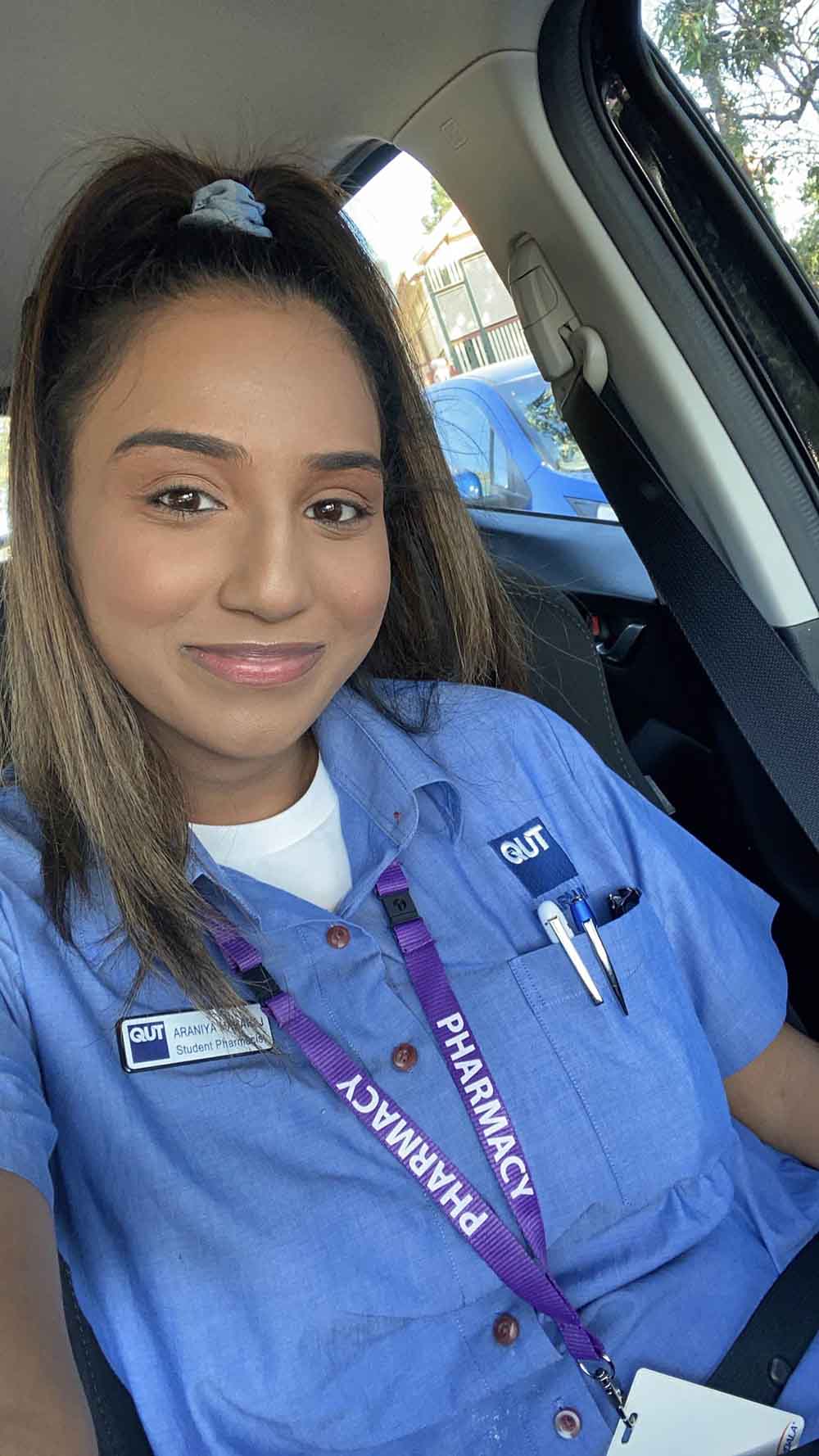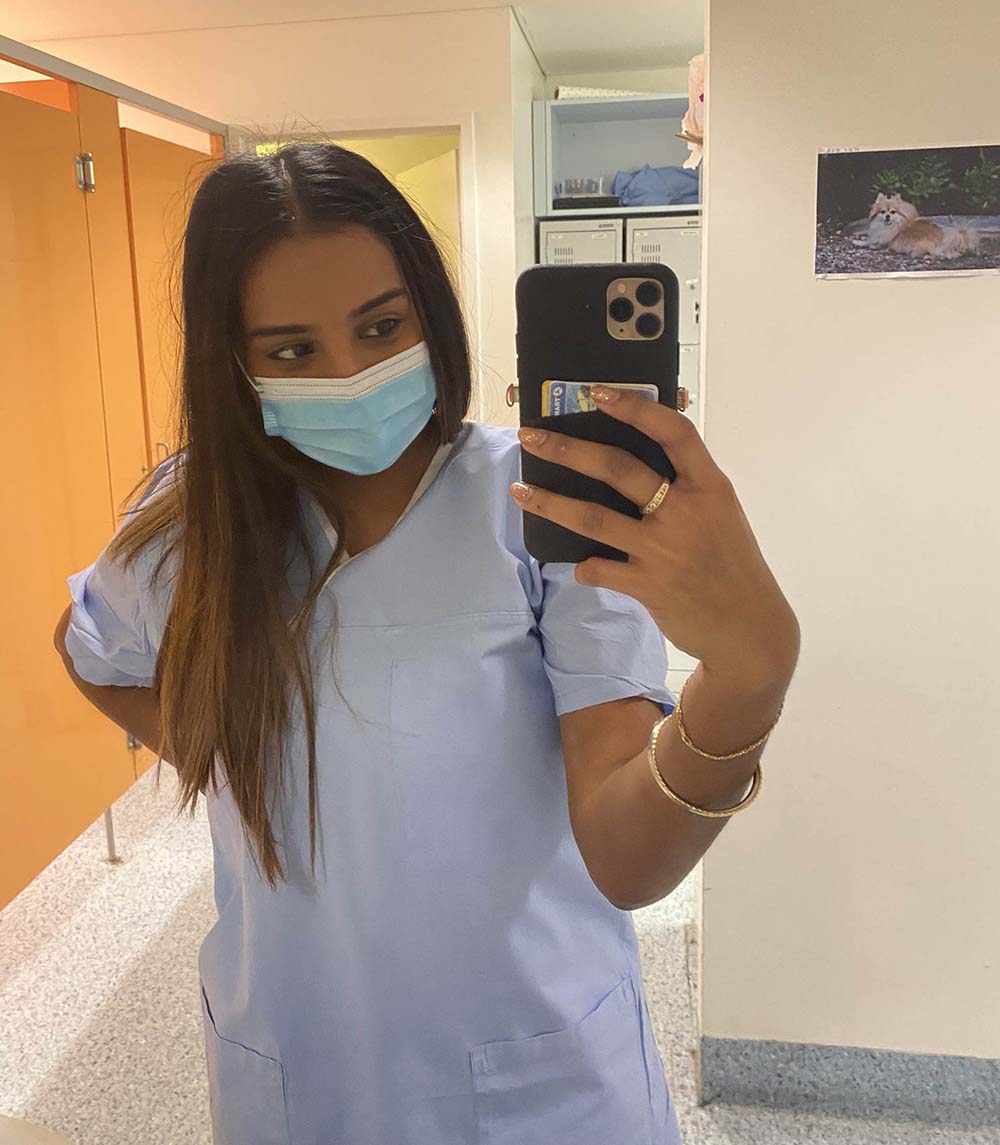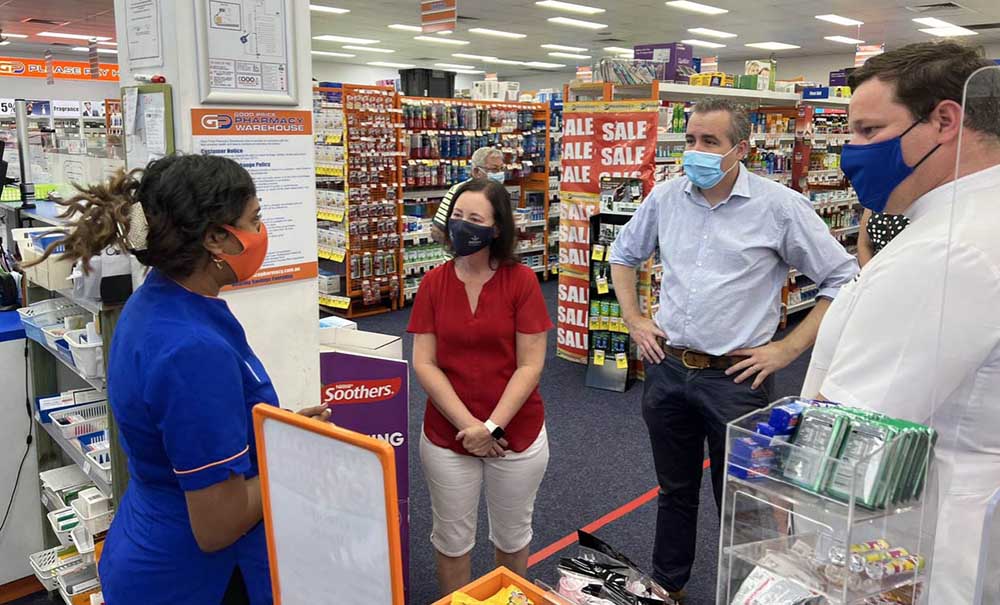
Araniya Maharaj, 19 July, 2022
Pharmacy student Araniya Maharaj shares her experience of studying pharmacy at QUT.
 I chose to study pharmacy because I loved the idea of helping people-but I wanted to do so in a clinical role, as I am a very queasy person and faint at the sight of blood.
I chose to study pharmacy because I loved the idea of helping people-but I wanted to do so in a clinical role, as I am a very queasy person and faint at the sight of blood.
I decided to study at QUT because it has a smaller pharmacy cohort, which means more tailored learning and the opportunity for more one-on-one time with lecturers and tutors. There is also a strong practical focus,where we do over 400 hours of placement in various pharmacy settings, and even more practical hours on campus through labs and workshops.
During lab classes at university, we learn many of the skills needed to be competent pharmacists—a big one is compounding medications, and tailoring medicine schedules which is such an up-and-coming aspect of health right now, as our world starts transitioning to a targeted specific therapy approach for medicine management. It has been so interesting, and extremely helpful to learn these techniques at university as it means that I am equipped with all the skills required to work as a pharmacist when I graduate.
Additionally, in our patient centred care units, we learn about the different perspectives to consider when providing healthcare, and QUT really helps us to realise the importance of this through presentations from guest lecturers, where we often learn about the impacts of medication management (or in some cases mismanagement) and health conditions on individuals. We also work very closely with other health students from our first year, which helps us to gain a better understanding of other health professionals, and the roles they play in delivering patient centres.
Our learning is reflective of real-world settings, where a multidisciplinary healthcare team approach is used to deliver the highest level of patient centred care—QUT gives us a head start on this concept.

In our health degrees, we are fortunate to have an amazing Work Integrated Learning (WILs) team. Our pharmacy WILs team coordinate placement for 6 out of 8 semesters of our degree—in a wide range of settings, from hospitals and community pharmacy, rural and interstate settings, and even pharmaceutical companies and research facilities—which means we get maximum exposure to various aspects of pharmacy before we even graduate.
I completed a hospital placement earlier in my degree which was one of the highlights of my degree—during my 2 weeks I went on multiple hospital rounds, learnt the medicines specific to health conditions I wouldn’t see outside of a hospital setting and even got to chuck on my own set of scrubs and head down to theatre! It was in this 2-week period I realised that I have strong passion for hospital pharmacy and delivering one on one patient centred care in a clinical setting.
I feel like my entire degree has helped me set up for my career. From gaining experience through placement at a multitude of sites, to examinations and assessment, set up in a real-life pharmacy simulation—so much of what we learn and do at university is reflective of what our careers will entail. I have been offered internships and jobs from many of my placement sites, and I’ve had opportunities such as research projects offered from the connections I’ve made through university.

My advice to someone thinking about pharmacy would be to try and get some work experience in a pharmacy, as this is the best way to see, firsthand, what the career entails. First, it's very different to the textbook definition of what we think pharmacists are, we're not just people that stick labels on bottles. I think it's really important to get a bit of exposure, see what's available, and really gain an understanding of the different roles that are available when you study this degree. And remember that pharmacists don’t just work in community pharmacies, dispending medication. From working in hospitals and research trials, to evaluating medicines and coordinating clinical trials, and even helping to prepare medicine for treating patients—there is never a shortage of jobs in this industry, in a wide range of scopes. With a degree in pharmacy, the opportunities are certainly limitless.
